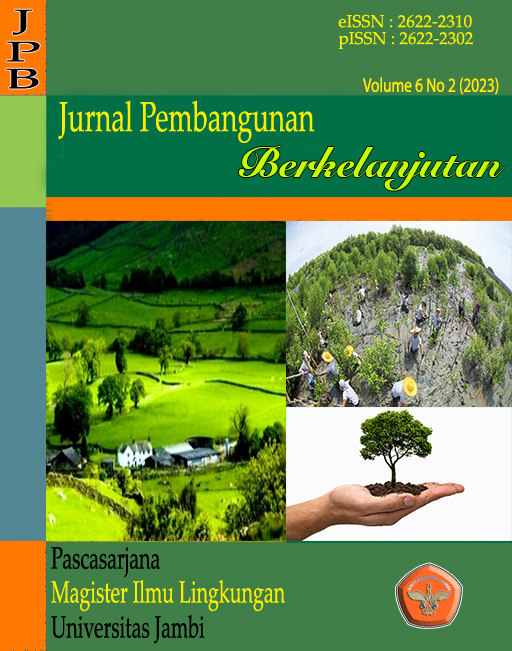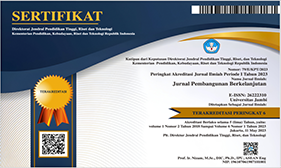Analisis Kinerja Instalasi Pengolahan Air Limbah (IPAL) RSUD H. Abdurrahman Sayoeti Kota Jambi
DOI:
https://doi.org/10.22437/jpb.v6i2.29270Keywords:
IPAL, RSUD H. Abdurrahman SayoetiAbstract
Penelitian ini bertujuan untuk mengetahui kinerja IPAL RSUD H. Abdurrahman Sayeti Kota Jambi. Dalam penelitian ini menggunakan metode penelitian deskriptif dengan menggunakan pendekatan kuantitatif. Data sekunder meliputi data pemeriksaan kualitas air limbah pada inlet dan outlet IPAL dengan parameter pH, COD, BOD, TSS, Minyak dan Lemak, dan Amoniak. Berdasarkan hasil analisis efisiensi kinerja IPAL RSUD H. Abdurrahman Sayoeti termasuk aktegori efisien. Efisiensi kinerja IPAL tersebut dapat dilihat dari penurunan konsentrasi BOD dengan efisiensi 86,98%, penurunan konsentrasi COD dengan efisiensi 90,02%, penurunan konsentrasi TSS dengan efisiensi 77,6%, penurunan konsentrasi minyak dan lemak dengan efisiensi 53,47%, dan penurunan konsentrasi amoniak dengan efisiensi 80,76%. Jenis IPAL yang digunakan adalah IPAL bio-oksidasi anaerob-aerob. Kapasitas IPAL terpasang adalah 151 m/hari3 mampu menampung dan mengolah air limbah 2 kali lipat dari debit air limbah yang dihasilkan yaitu 71,02 m3/hari.
Downloads
Downloads
Published
How to Cite
Issue
Section
License
Copyright (c) 2023 Jurnal Pembangunan Berkelanjutan

This work is licensed under a Creative Commons Attribution 4.0 International License.
1. Authors retain copyright and grant the journal right of first publication with the work simultaneously licensed under a Creative Commons Attribution 4.0 International License that allows others to share the work with an acknowledgement of the work's authorship and initial publication in this journal.
2. Authors are able to enter into separate, additional contractual arrangements for the non-exclusive distribution of the journal's published version of the work (e.g., post it to an institutional repository or publish it in a book), with an acknowledgement of its initial publication in this journal.
3. Authors are permitted and encouraged to post their work online (e.g., in institutional repositories or on their website) prior to and during the submission process, as it can lead to productive exchanges, as well as earlier and greater citation of published work (The Effect of Open Access)











